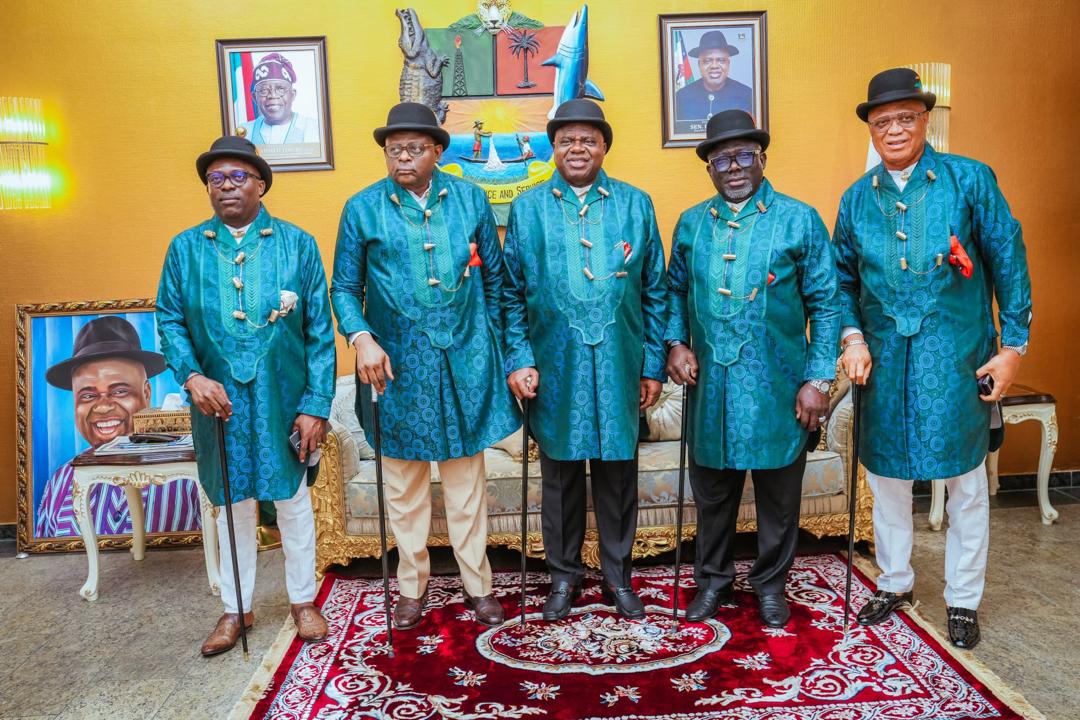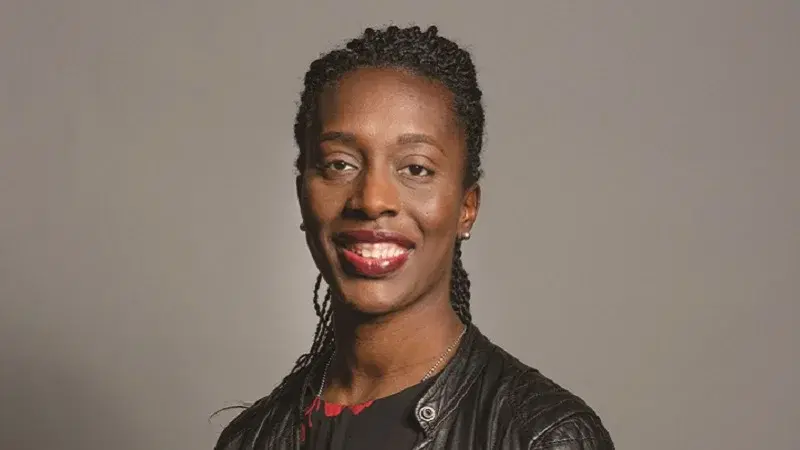News
Nigeria’s Crude Oil Production Rigs Drop By 37.5%

The number of functional crude oil production rigs in Nigeria decreased by 37.5per cent to just 10 operational rigs in March, 2022, the Organisation of Petroleum Exporting Countries (OPEC) has said.
An oil rig, offshore platform, or oil and/or gas production platform is a large structure with facilities to extract, and process petroleum and natural gas that lie in rock formations beneath the seabed.
Nigeria is a strong member of OPEC and has been championing activities of the group for decades, though failing lately in meeting its monthly oil production quota as approved by the organisation.
Data from OPEC’s latest Monthly Oil Market Report for April 2022, last Friday, showed that Nigeria’s operational oil rigs had been on the decline since 2019.
In its world rig count and units, OPEC stated that in 2019 Nigeria had an average of 16 functional rigs, but this dropped to 11 in 2020 and crashed further to an average of seven in 2021.
In fact, the organisation revealed that the country’s rigs dropped to as low as five in the second quarter of 2021, before picking up to 10 in the third quarter of same year, but eventually dropped again to seven in the fourth quarter of last year.
It moved up to eight functional rigs in the first quarter of this year, going by OPEC data, as the organisation’s report further showed that Nigeria’s oil rigs were eight in February, 2022.
The rig count appreciated marginally in March this year to 10.
Hence, the fluctuations in Nigeria’s rig counts indicated that it dropped by from an average of 16 in 2019 to 10 in March, 2022, representing a decrease of 37.5per cent.
Meanwhile, the report showed that aside from Iran which had maintained 117 rigs since 2019, some other oil-producing nations witnessed varying degrees of declines in their rig counts.
The rig counts of Saudi Arabia, Algeria, and the United Arab Emirates, for instance, also dropped from 115, 45 and 62 to 74, 30 and 41, respectively between 2019 and March, 2022, according to OPEC data.
However, countries such as Angola, Venezuela and Libya, for instance, saw a marginal rise in the number of functional oil rigs in their various domains.
Amidst the drop in oil rig count for Nigeria, the country has also suffered massive decline in its crude oil production making it unable to meet its OPEC approved oil production quota since this year.
Operators in Nigeria’s oil and gas sector had also attributed the drop in oil production to oil theft, while the government had raised concerns about the exit of international oil companies from Nigeria due to the global push for net zero carbon emission.
Also an analysis of the OPEC report showed that Nigeria’s oil production had been falling since January this year.
It was observed that while the country produced 1.413million barrels of crude oil daily in January, this dropped to 1.378million barrels per day in February, and plunged further to 1.354million barrels per day in March.
The situation confirmed concerns by both government officials and International Oil Companies operating in Nigeria that crude oil production in the country had been on the decline since 2021.
On March 24, 2022, for instance, the total value of Nigeria’s crude oil stolen between January 2021 and February 2022 was about $3.27billion (representing N1.361trillion at the official exchange rate of N416.25 to the dollar), according figures from the Nigeria Upstream Petroleum Regulatory Commission.
International oil companies and their counterparts in Nigeria also stated recently that the massive oil theft across the country posed a threat to not just their existence, but to the Nigerian economy.
But NNPC’s Group Managing Direction, Mele Kyari, had announced recently that measurable outcomes against the massive crude oil theft in the Niger Delta would be visible in three weeks’ time.
Kyari had said, “As we speak now there is massive disruption to our operations as a result of the activities of vandals and criminals along our pipelines in the Niger Delta area.
“This has brought down our production to levels as low as we have never seen before. Today we are doing less than 1.5million barrels per day simply because some criminals have decided that they should have some infractions on our pipelines.”
Nigeria’s oil production quota by OPEC has revolved around 1.8million barrels per day.
The country has repeatedly missed this target due to oil theft.
“And that clearly is the biggest form of business disruption that we are facing today,” the NNPC boss had stated.
He added, “This kind of engagement, the certifications that we have today around our systems and processes should be able to respond to this. And part of the response is to bring in the best framework possible to contain this situation.
“I’m happy to tell us that enormous work is going on between us and the Federal Government recognised security agencies, our partners, particularly those on the corridors that are impacted, and also the community members.
“And I’m very optimistic that within the next two to three weeks some very measurable outcomes will come so that our businesses will continue. As we speak now, the Nigerian Navy is launching a massive operation to contain oil theft in the Niger Delta.”
News
Let’s Approach Regional Development Issues Differently – Fubara …As S’South Govs Host Fubara To 50th Birthday Celebration

Rivers State Governor, Sir Siminalayi Fubara, has sued for a change in the current approach adopted by South South Governors in their pursuit to achieve holistic regional development and economic prosperity.
The governor insisted on de-emphasis in vested individuals’ political interests while looking at the bigger picture of achieving enduring regional integration that will strengthen unity of purpose to change the trajectory of development in the region.
Fubara made the appeal during the meeting of Governors of South-South States, under the auspices of BRACED Commission, at the Bayelsa State Government House in Yanagoa on Tuesday.
This was contained in a statement by the Chief Press Secretary to the Governor, Nelson Chukwudi.
BRACED is an acronym for Bayelsa, Rivers, Akwa Ibom, Cross River, Edo and Delta.
He said: “I want to appeal that if we have to succeed in this drive, we need to keep our political differences aside and understand that the struggle, as at today, is for posterity, for the development of our region.
“It is really sad that in Niger Delta that is the economic base of this country, the construction of a road that you tagged ‘East-West Road’ could be an issue, that we need to beg, protest, and complain to get it fixed. I don’t think it is proper.”
Governor Fubara stated that it is not that the federal authorities do not understand that Niger Delta needs the road but quickly added that they have seen that even the people of the region do not take themselves seriously.
The governor said the moment Niger Delta people stopped playing to the gallery, and place value on themselves, outsiders will have no option than to accord the region and its people due regard.
Fubara said: “On my part, I want to say this: This is not the first time we are meeting. For me, I followed the course of the region meeting in a forum that we tagged “BRACED Commission.”
“BRACED Commission is also one of the bodies that was constituted at that time to support and work out development strategies for this region. But what I am seeing today is just limiting this meeting to only BRACED COMMISSION.
“We need to widen the scope where other leaders of the region should be part of the discussion of the development of the region, and I think this is the direction that will help the region.”
Reading the Communique of the meeting, the new Chairman of the Forum of Governors of South-South States, and Governor of Bayelsa State, Senator Douye Diri, said they support the Federal Government Tax Reform Bills, and urged President Bola Tinubu to extend the Value Added Tax (VAT) sharing percentages to oil and gas derivation.
He stated the Forum’s request to the Federal Government to urge relevant stakeholders and agencies to extend remediation of polluted environment ongoing in Ogoni land to other impacted communities and States in the region.
Governor Diri also said that the Forum resolved to establish a structural regional security network to enhance safety and security, foster stable Niger Delta region conducive for economic growth and prosperity.
Highlight of the event was the hosting of Governor Fubara to a surprise 50th Birthday celebration by the Governors of South-South States at the Government House in Yenagoa.
News
Fubara Lauds Tinubu For Setting Up Education Load Fund … Vows To Ensure Rivers Benefit Maximally From Scheme

The Rivers State Government has applauded President Ahmed Bola Tinubu for conceiving the idea of setting up the Nigeria Education Loan Fund (NELFUND) which has opened up opportunities for youths to acquire tertiary education irrespective of their financial status.
Rivers State Governor, Sir Siminalayi Fubara, gave the commendation while playing host to a delegation from NELFUND who came on an advocacy visit to the Government House in Port Harcourt on Tuesday.
Represented by his deputy, Prof. Ngozi Nma Odu, Governor Fubara said in developed countries it is common for people to go through school with loans which they sometimes pay all throughout their lives, noting that “for us, it is more accessible and more friendly because you would be required to pay back the loan two years after your National Youth Service.
“It is a win-win situation; it is a situation where the youths in Nigeria should not say because my parents are poor or passed away I cannot improve on my educational growth. This offers them a golden opportunity and I am glad you came for this advocacy.”
The governor urged NELFUND to intensify its advocacy to let the people know how they can benefit from it, adding that it is more important when talking about vocational institutions.
“If you look at the developed countries it is people that went to the vocational schools that make so much money, because it is pricey to get somebody to do anything, we need to instil this into our people, our youths, because people sometimes tend to look down on people that went to vocational schools, it should not be,” he said.
Fubara expressed delight with the NELFUND programme and assured that the State Government would do whatever it can to ensure Rivers State benefits maximally from the scheme.
In his remarks, the Managing Director and Chief Executive of NELFUND, Dr. Akintunde Sawyer, informed the governor that they were in Rivers State to seek the support of the State Government towards the loan, stressing that President Tinubu has directed them to ensure no Nigerian student who has the ability and desire to get educated at tertiary level is denied the opportunity due to lack of funding.
He explained that the scheme provides interest-free loans to students who apply, adding that these loans are not repayable until two years after their Youth Service when they must have gotten a job.
News
UK Appoints British-Nigerian As Trade Envoy To Nigeria

A British-Nigerian politician, Florence Eshalomi, has been appointed as the United Kingdom’s trade envoy to Nigeria.
Her appointment makes Eshalomi the second Nigerian to hold the position.
Confirming her appointment on X on Tuesday, she wrote: “It is an honour to have been appointed as the United Kingdom’s Trade Envoy to Nigeria.
“I’m looking forward to building on my close ties with Nigeria to promote a strong and flourishing economic relationship between our two great nations.
“I am looking forward to strengthening the UK’s relationship with Nigeria to explore shared growth and opportunities for both countries.”
Announcing the appointment in a statement on Tuesday, Jonathan Reynolds, the UK’s Business and Trade Secretary, said the decision was aimed at attracting investment into the UK and boosting economic growth.
“I’ve launched a new team of trade envoys who will use their experience, expertise, and knowledge to unlock new markets around the world for British businesses, attract investment into the UK, and ultimately drive economic growth,” Reynolds said.
Eshalomi, 44, is an MP representing the Vauxhall and Camberwell Green constituency.
She holds a Bachelor of Arts (Hons) in Political and International Studies with Law from Middlesex University.
-
Business3 days ago
NNPC Plans Mini NLNG Projects For Outside Pipeline Network Customers
-
Politics1 day ago
Celebrate Patriotic Citizens, Not Corrupt Politicians, Babalola Tells FG, States
-
Business1 day ago
FG Assures On Releasing Illegal Air Charter Report
-
News3 days ago
Nigeria Customs Honours 21 Personnel For Diligence In Duty
-
News1 day ago
Security: PCRC Holds Street Walk For Fubara, Lauds Gov @50
-
Opinion1 day ago
Rivers Politics: Lere Olayinka’s Cocktail Of Lies
-
Business3 days ago
Nigeria Wants Higher Quota From OPEC
-
News1 day ago
#EndBadGovernance Protesters Storm Court, Demand Sowore’s Release

